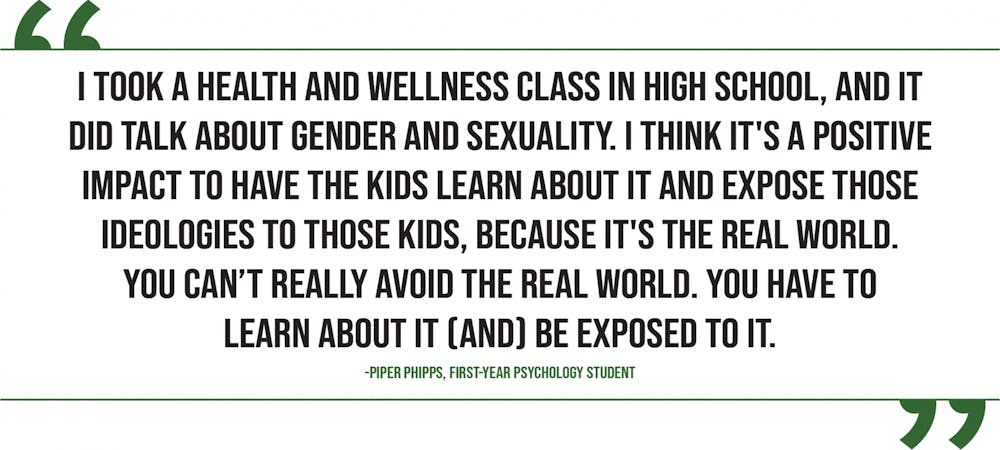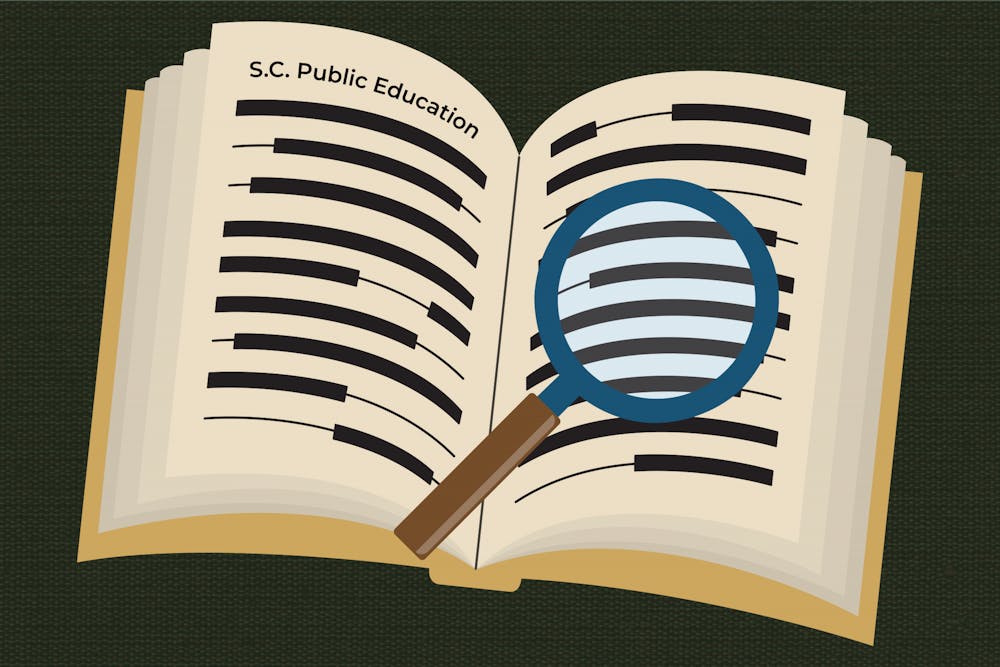Critical race theory and the impact of ideology in education has been a growing topic in South Carolina, and as such, it should be thoroughly examined, debated and rationalized since its significance is heavily impactful to students and the South Carolina education system.
Critical race theory is defined by the Oxford English Dictionary as a theoretical framework for examining the influence of racial bias on social and cultural institutions and practices. H. 3464, a new bill that is currently residing in the S.C. House of Representatives, aims to prohibit the instruction of critical race theory.
This bill not only affects public schools and school districts, but also public institutions of higher learning. From classroom rhetoric, literature, activities and discussions, a ban on critical race theory would have a large array of effects on what goes on in schools.
“Schools would be required to stay with the agenda that the Department of Education has put out and keep these teachers from wavering too much off of base,” S.C. Rep. Mike Burns (R-Greenville) said.
Burns’ constituents in South Carolina's 17th district have approached him with concerns about the potential ideological impacts for high school students' education that they want corrected by H. 3464.
“I had a lady show up to my house, on my steps,” Burns said. “Her graduating senior son was taking a college transfer course for class credit — for future college credit, also. And he was instructed to write a paper apologizing for being white, and he wouldn't do it. And they failed him. He failed the course.”
Bill H. 3464, sponsored by Burns, would not allow public education to introduce instruction or units of study compelling students to adhere to any tenets of critical race theory. This would mean that students could not seek instruction or engage in discourse involving the presence of critical race theory in the classroom.
The bill includes sex, race, ethnicity, religion, color and national origin under the language of critical race theory.
It is clear that there is opposition to ideological teachings concerning race, gender and sexuality under the umbrella of critical race theory. On the other hand, students such as first-year psychology student Piper Phipps, who have grown up within the South Carolina education system, feel there is a need for the understanding of race, gender and sexuality in today’s world.
“I took a health and wellness class in high school, and it did talk about gender and sexuality,” Phipps said. “I think it's a positive impact to have the kids learn about it and expose those ideologies to those kids, because it's the real world. You can’t really avoid the real world. You have to learn about it — be exposed to it."

There are consequential negatives and drawbacks to banning the discussion of race, gender and sexuality in the classroom, and a consensus about critical race theory is difficult to reach, as its impact is seen across the nation. This is why nothing should be banned immediately or without careful thought and reason. Heedlessly banning something that provokes ideas and discussions of the real world, such as race and gender, could be harmful to students.
The hasty effort to enact legislation against critical race theory could have an effect on everything from the literature students read to classroom discussions and activities. According to a 2022 study from PEN America, at least 40% of book bans (1,109 books) are due to proposed or enacted legislation opposed to critical race theory and ideological teachings in schools. PEN America’s index of school book bans has tracked 2,532 decisions to ban books from July 1, 2021, to June 30, 2022.
There is a considerable consequence of banning ideological discourse in public education, as these instances are prevalent in society today. A study conducted by the National Library of Medicine concluded that sex, gender, race and ethnicity play important roles because of their social implications.
“Aspects of gender and sexuality are such a big part of real life,” Phipps said. “The best way for children to be more accepting and knowledgeable about these things is through being educated.”
The study also includes the contributions and importance of sex, gender, race and ethnicity in genetics and the environment. Discussing the social constructs of gender and ethnicity fall under the umbrella of critical race theory, and the study is evidence that these ideologies are valuable to public education systems.
A ban on the language and content of critical race theory would also limit the extent of what professors and teachers could discuss with students in classrooms, even though the issues being discussed are abundant these days. If students aren't receiving this level of education, they could develop a gap in knowledge by the time they reach institutions of higher learning, where they deserve to have a say in what they learn and discuss in a classroom.
Passing state legislation with regard to critical race theory in the South Carolina education system should require thoughtful consideration, as it has a significant impact on students and higher education in the state.

